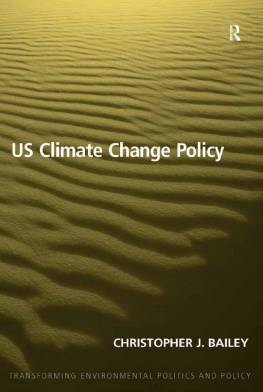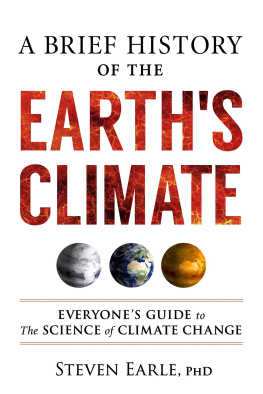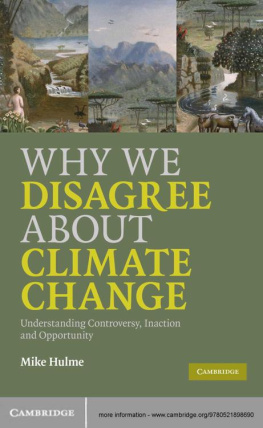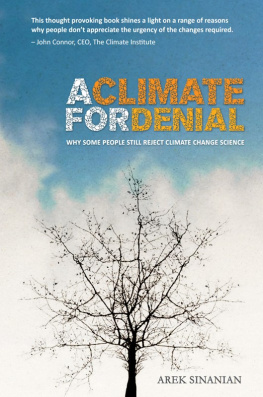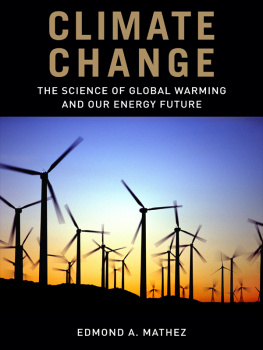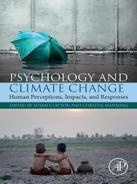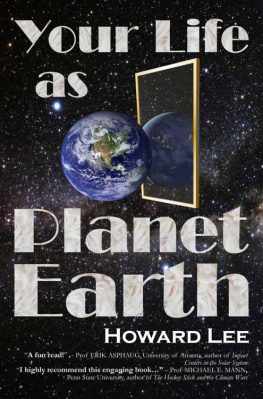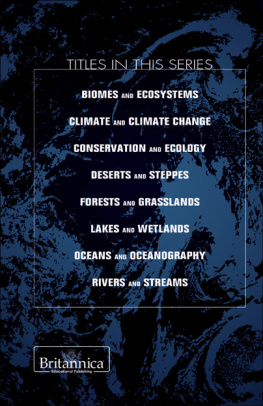Facing Climate Change
Facing Climate Change
An Integrated Path to the Future
Jeffrey T. Kiehl

Columbia University Press
New York
Columbia University Press
Publishers Since 1893
New York Chichester, West Sussex
cup.columbia.edu
Copyright 2016 Columbia University Press
All rights reserved
Library of Congress Cataloging-in-Publication Data
Kiehl, J. T. (Jeffrey T.)
Facing climate change : an integrated path to the future / Jeffrey T. Kiehl.
New York : Columbia University Press, [2016] | Includes bibliographical references and index.
LCCN 2015022596 | ISBN 9780231177184 (cloth : alk. paper) | ISBN 9780231541169 (e-book)
LCSH: Climatic changesPsychological aspects. | Global environmental changePsychological aspects. | Environmental psychology. | Human ecologyPsychological aspects.
LCC BF353.5.C55 K54 2016 | DDC 155. 9/15dc23
LC record available at http://lccn.loc.gov/2015022596
A Columbia University Press E-book.
CUP would be pleased to hear about your reading experience with this e-book at cup-ebook@columbia.edu.
COVER IMAGE: Photo by Jeffrey T. Kiehl
COVER DESIGN: Milenda Nan Ok Lee
All text photos by Jeffrey T. Kiehl
References to websites (URLs) were accurate at the time of writing. Neither the author nor Columbia University Press is responsible for URLs that may have expired or changed since the manuscript was prepared.
For Nancy, Kate, Alexis, and Matthew
We are now faced with the fact that tomorrow is today. We are confronted with the fierce urgency of now. In this unfolding conundrum of life and history there is such a thing as being too late.... We may cry out desperately for time to pause in her passage, but time is deaf to every plea and rushes on. Over the bleached bones and jumbled residue of numerous civilizations are written the pathetic words:
Too late...
Martin Luther King Jr.
...
As any change must begin somewhere, it is the single individual who will experience it and carry it through. The change must indeed begin with an individual; it might be any one of us. Nobody can afford to look round and to wait for somebody else to do what he is loath to do himself. But since nobody seems to know what to do, it might be worthwhile for each of us to ask himself whether by any chance his or her unconscious may know something that will help us.
C. G. Jung
Contents
Our demand for energy and our consumption of Earths natural resources have pushed the planet into a state of great peril. Becoming aware of this environmental crisis is a first step toward transformation. It is natural to experience overwhelming distress when contemplating this situation. Beneath the fear of losing things close to us is the more fundamental fear of losing the world that has given birth to life itself. I sense this deep fear whenever I talk with people about global warming. The seeds of change are embedded in this generalized anxiety. Crises often give birth to creative transformation. Opportunities to create a better world can arise from our current situation, in which we are called to participate actively in this transformation. I have explored ways to begin the journey toward a flourishing future. The paths of science, Jungian psychology, philosophy, and Buddhism provide practical tools to understand the barriers to transformation and, more importantly, the means of breaking through them.
Science provides us with a clear picture of how and why Earths climate is changing. The facts, based on observations, lead to the conclusion that we are altering the climate. The implications for the future are also certain. We cannot continue our current behavior toward the planets precious natural resources. We must begin to develop a more caring relationship toward the world. Although technology will play an essential role in addressing our problems, we must confront the facts of the fundamental psychological roots of this problem. Facing psyche is a pivotal point for our transformation. By psyche, I mean both the conscious and unconscious processes that make up our psychology.
Jungian psychology helps us understand why we fear the changes looming in our future. In gazing into the depths of the unconscious, we see how it is possible to deny the existence of threats in spite of their reality. Jung discovered that our psyche contains coherent patterns of behavior that are charged with affect. Jung called these feeling-toned structures complexes. Complexes not only occur in individuals; they appear in entire cultures. Jungian psychology helps us analyze how individual and cultural complexes contribute to the existence of our environmental situation. Awareness of these coherent emotional patterns opens us to developing a more meaningful relationship with them, allowing us to move through our habitual patterns of negativity. Breaking through the psychological barriers to change brings us to a threshold of transformation. On a deeper psychological level, Jung proposed the idea of archetypes, which are universally shared patterns of perception. Archetypes appear across cultures in the form of images and metaphors. Perhaps the most universal archetypal images are those of mother and father. Archetypes are the shared lenses through which we view the world.
Philosophy prompts us to ask questions concerning our way of being in the world. Throughout this work I use the word world as a signifier not of planet Earth but as the particular environment we experience. Thus, we have an inner psychological world, an outer everyday world, a social world, and a global collective world. In asking questions such as why we are here or how our being affects the world, we become aware of how we are a part of the world. In our explorations of the phenomenal world, the felt-sense world we experience in our everyday lives, we can begin to develop an ability to see deeply. This is a way of sensing the beauty and richness of things around us. We not only see the surface of things but can appreciate the inherent value of what is in the world. Sensing the world this way places us in a closer relationship to all things. This type of focusing grounds us so that we can see the world through a lens of fearlessness rather than fear.
Buddhism is a path that grounds us in awareness. I choose this particular path because it feels right for me. There are, however, many roads to finding inner stillness. Many religions have practices that open one to the transpersonal, and in connecting with it we awaken to our true interconnectedness with the world. Here, the word transpersonal means an awareness that transcends the egos perspective. This awareness recognizes that there is more to the world than our individual existence. What transcends the ego perspective is rooted in spiritual experience, be it God, the Tao, Buddha-nature, or nature itself. An experience of the transpersonal provides us with meaning, which seems so elusive in a world rooted in the view that we are fundamentally separate individuals. From a Buddhist perspective, our ability to experience a transpersonal dimension in life ultimately depends on how we relate to mind. By becoming more mindful, we are able to change our presence and purpose in this world, and our actions will thereby arise from a sense of compassion for all beings.
These are the threads that I believe are critical for weaving our new tapestry of creative transformation. I feel that by bringing head and heart together we will be able to create a sustainable, flourishing future. History shows that humanity can rise to meet great challenges and overcome seemingly insurmountable odds. There is no question that the world is mired in continual conflict, from the local to global scales. It is difficult to see how we can transcend this state of turmoil. However, our basic nature of empathic, compassionate being can unite us in the creation of a new world of cooperation, creativity, and connectedness. I invite you to join me in weaving this tapestry of a flourishing future.
Next page

